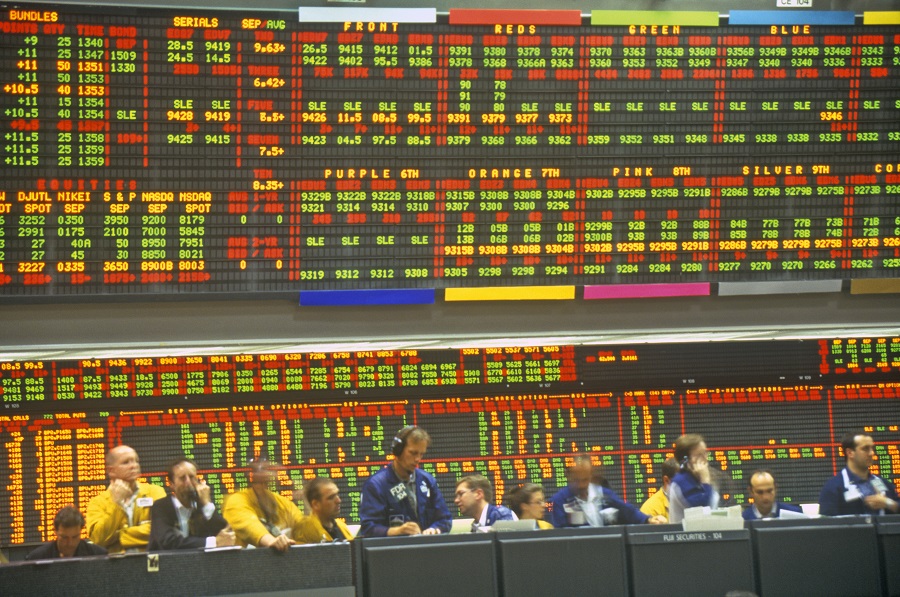
Reader ‘KN’ asks: “What’s the difference between trading ‘Forex’ and ‘Forex futures’ and when would you use one but not the other?”
It’s a good question. What we’re looking at here is ‘Spot Forex’ traded via a spread betting company or a broker V’s the currency futures contracts (typically traded by professional traders on the Chicago Mercantile Exchange).
And there is no easy answer.
Because spot forex has come a long way in the last decade or so. And I think there is room for both routes into the currency markets. It’s more a case of choosing the right tool for the job.
Let’s just have a look at the main benefits of trading spot forex…
Why you might choose to trade Spot Forex
1) Lower barrier of entry – using leveraged accounts (be careful, it can be a double-edged sword!) traders can hold significant trade positions with just a small part of the overall value held by the broker as margin (‘margin’ is the deposit your broker expects you to maintain while you’re in the trade). By contrast, even a single futures contract of EURUSD requires a margin deposit of $2,500 before you can trade.
2) Account sizes to suit all – it doesn’t matter how much or how little you want to trade with there will be a spot forex account to suit your requirements. ‘Micro Accounts’ let you trade from as little as 10p per pip. It means you can get things rolling on a small budget and expand your operations as your bankroll grows.
3) Fast execution and deep liquidity – this used to be the sole preserve of the futures market but with reliable ECN (Electronic Communication Network) exchanges like LMAX in London, you can now trade directly with your counterparty and access institutional grade liquidity around the clock. If you choose carefully, the days of your broker sitting on your order while they try to offset their own risk in the market are long gone.
4) No capital gains tax or income tax to pay – if you trade through a spread betting firm, and your trading profits are not your primary source of income, you don’t normally pay tax on what you make. Do be sure to seek specialised tax advice first, though. You can be sure HM Revenue and Customs will be happy to take a slice of your pie if you don’t conduct your dealings tax-effectively.
So for the average home trader – being reasonably active and looking to exploit the short-term fluctuations in price – Spot Forex is probably the right choice.
Meanwhile, over at the CME, futures contracts can offer you the following benefits…
Why you might choose to trade Forex Futures
1) You get a completely level playing field – it doesn’t matter if you are Goldman Sachs or Joe Bloggs, everyone’s order gets routed the same way and it’s a case of first-in, first-out. If you spotted an opportunity and placed an order for even a single contract before a block of 1000 contracts comes in, you get filled first. Everyone is equal with no preferential treatment given to the big players.
2) Standardised and transparent data – because all participants in the futures market trade through a centralised exchange, every single action is recorded and available for your analysis. You can see exactly how many contracts were traded at what price, how much volume came in at the bid only to be lifted before getting filled (a head-fake), precisely which areas in the market were used as high-volume support and resistance, and much more… this can all help you make better, more accurate trading decisions.
3) Guaranteed Security of funds – if you trade a larger account, this is probably the thing that’ll swing you over to futures. CME Group’s record of never having a default or loss of client’s funds is a huge factor. It works because risk is shared amongst all the clearing firms that are members of the exchange, they each act as guarantor. In effect, every transaction on the exchange is guaranteed.
So the futures market is probably more suited to the professional trader placing larger volume trades. You do get a more transparent marketplace but it comes at the price of larger upfront financial commitments.
And don’t forget, it was only a handful of years ago when currency markets were the sole preserve of City institutions. Home-based traders didn’t even get a look-in.
So whichever route into the market you choose be glad for the professional-level tools and technology right here at your fingertips!
